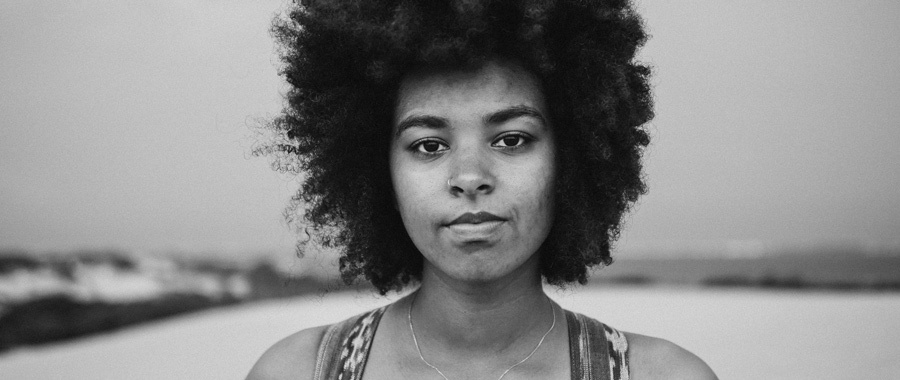As humanity traverses the complex landscape of the 21st century, a pressing inquiry emerges: How can we effectively confront the deeply entrenched evils of racial prejudice that persistently plague societies worldwide? This question, though deceptively simple, masks profound challenges and opportunities for transformative change. Within the framework of the Bahá’í teachings lies a compelling blueprint for addressing this enduring issue, offering a holistic approach that integrates spiritual insights, social principles, and practical actions. The teachings of Bahá’u’lláh illuminate pathways toward unity, justice, and the eradication of racism, contemplating a future where diversity is celebrated rather than scorned.
The Bahá’í Faith, founded in the mid-19th century, posits that all humanity is akin to a single family, emphasizing the oneness of mankind as a central tenet. This foundational principle serves as a launching pad for a deeper exploration into the multifaceted dynamics of racial prejudice. By recognizing that all individuals, irrespective of their racial or ethnic backgrounds, share a common origin, Bahá’í teachings insist upon the dismantling of barriers that inhibit social cohesion. The exhortation to see beyond superficial distinctions challenges followers to envision a society characterized by genuine inclusiveness.
In addressing the historical roots of racial prejudice, it is essential to illuminate the sociocultural constructs that have perpetuated divisions. Prejudice often stems from ignorance, fear, and a lack of understanding. Bahá’í teachings urge individuals to educate themselves and others about the essence of humanity’s shared identity. This intellectual awakening, coupled with a spiritual realization of our interconnectedness, lays the groundwork for cultivating empathy and compassion. The call to action is not merely theoretical; it invites practitioners to engage in dialogue, share experiences, and learn from one another’s narratives.
Furthermore, the Bahá’í perspective emphasizes the significance of justice as an antidote to prejudice. Justice is not merely a legalistic principle; it is a moral imperative that requires a commitment to uphold the rights of all individuals. The teachings advocate for active participation in social betterment and the pursuit of equity, thereby inspiring Bahá’ís to work alongside others in the quest for a just society. This entails challenging systems of oppression and advocating for policies that promote equality. The Bahá’í community is thus called to be a proactive force in fostering environments where racial harmony can flourish.
However, genuine change often necessitates confronting uncomfortable truths. The process of unlearning ingrained prejudices demands introspection and sincerity. It can be disconcerting to acknowledge one’s biases and the privileges that may accompany them. Bahá’í teachings provide a framework for this self-examination, urging individuals to engage in a personal inventory of their attitudes and beliefs. Such introspective practices are not only beneficial for personal growth but are essential for overcoming societal prejudices.
To bring about meaningful change, the principles of consultation and collective action are paramount. The Bahá’í community places a high premium on the consultative process, promoting an environment where diverse perspectives are valued. This collaborative spirit empowers individuals to work together toward common goals, thereby heightening the efficacy of collective efforts. Through active involvement in community-building activities, Bahá’ís can mobilize initiatives that address local issues of racial prejudice, fostering a climate of understanding and respect.
A vital aspect of this endeavor involves the engagement of youth, who are inherently capable of envisioning a world unencumbered by the legacy of racial prejudice. Bahá’í teachings exhort the younger generation to be catalysts for change, harnessing their energy and creativity to challenge the status quo. Programs that encourage critical thinking, service-learning, and social action awaken a sense of agency among youth, emphasizing their role as architects of a more just and equitable society. The involvement of diverse grassroots movements, inspired by Bahá’í principles, can catalyze a ripple effect, inspiring broader societal change.
In reviewing the panorama of options available to combat racial prejudice, it becomes evident that the Bahá’í teachings offer comprehensive strategies that transcend mere rhetoric. The concept of moral leadership emerges as a pivotal theme, calling upon individuals to embody the values espoused by Bahá’u’lláh. Engaging with compassion, humility, and justice becomes essential in addressing the thorny issues of race. Leaders, whether in community roles or broader societal positions, are encouraged to foster environments of inclusiveness, serving as exemplary models to inspire others.
Consequently, practitioners of the Bahá’í Faith are challenged to extend their influence beyond their immediate communities. Global interconnectedness dictates that addressing racial prejudice is a universal concern warranting concerted efforts across boundaries. Building alliances with other faiths and social movements enhances the collective voice calling for justice. Through shared goals and mutual respect, a robust platform for dialogue and collaboration can be established.
Lastly, the power of prayer and spiritual practices cannot be overlooked in the quest to assail long-standing evils of racial prejudice. The Bahá’í teachings highlight the transformative potential of prayer in fostering inner peace and clarity. By engaging in spiritual reflection and seeking divine guidance, individuals are equipped to confront the biases that reside within, ultimately fostering a more compassionate and inclusive environment. Such spiritual endeavors serve as a foundation for both personal and communal growth.
In conclusion, the Bahá’í teachings offer an expansive and proactive blueprint for dismantling the long-standing evils of racial prejudice. By recognizing the oneness of humanity, advocating for justice, engaging in social action, and fostering inclusive communities, practitioners can challenge the paradigms that perpetuate division. As we navigate the complexities of contemporary society, the clarion call to transcend prejudice echoes through the teachings of Bahá’u’lláh, inspiring a collective commitment to a more just and harmonious world.
